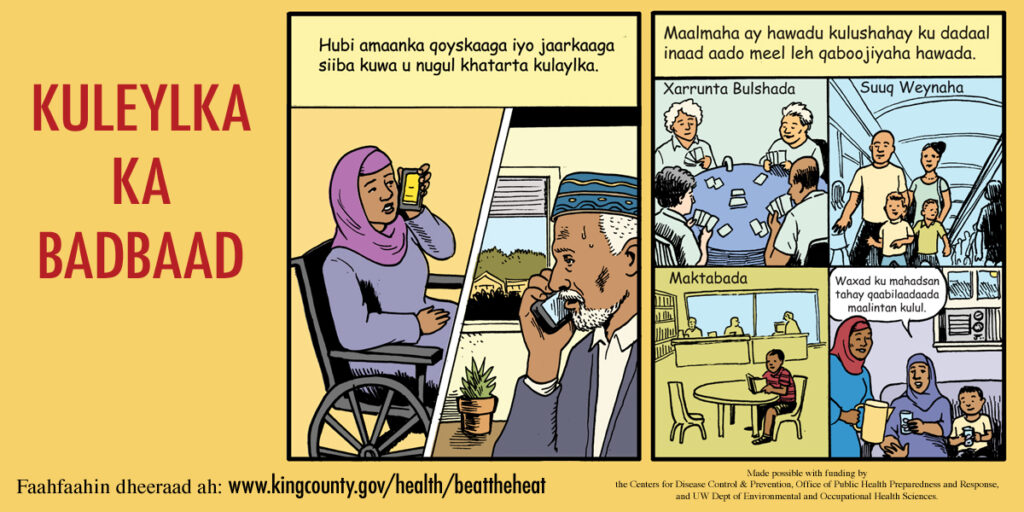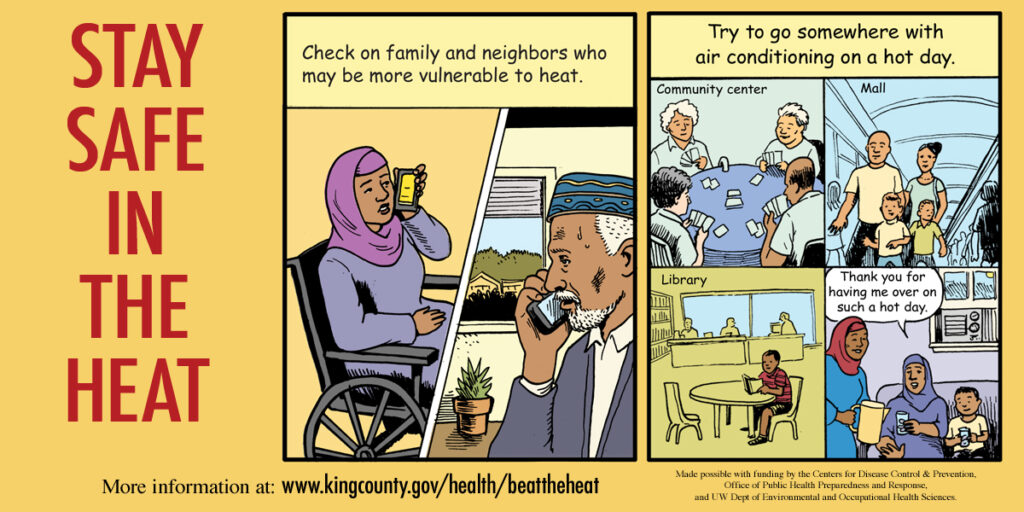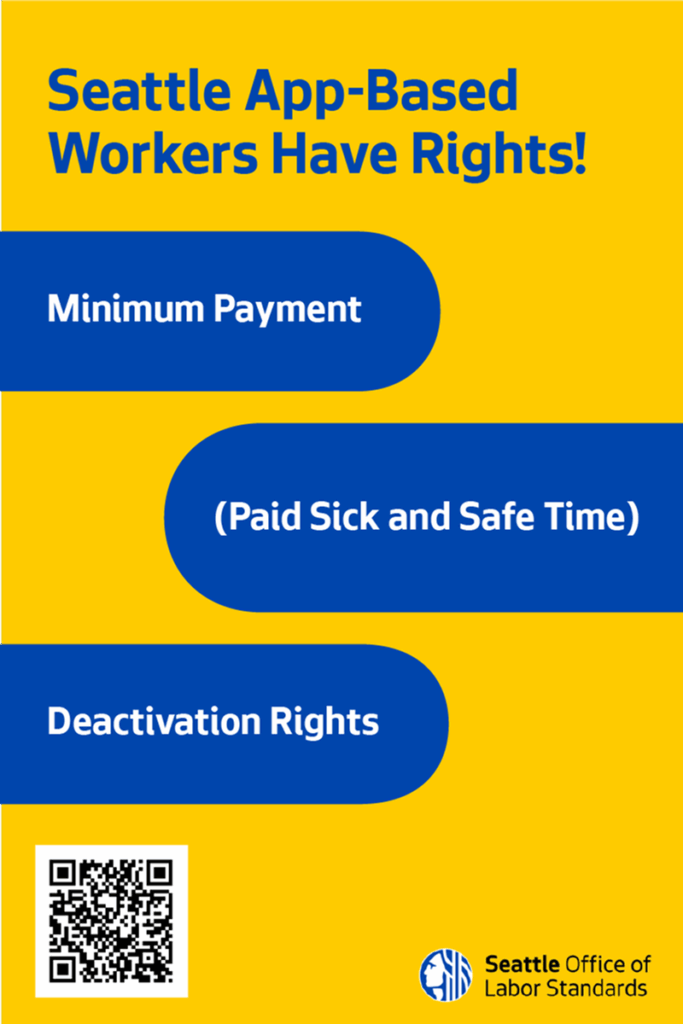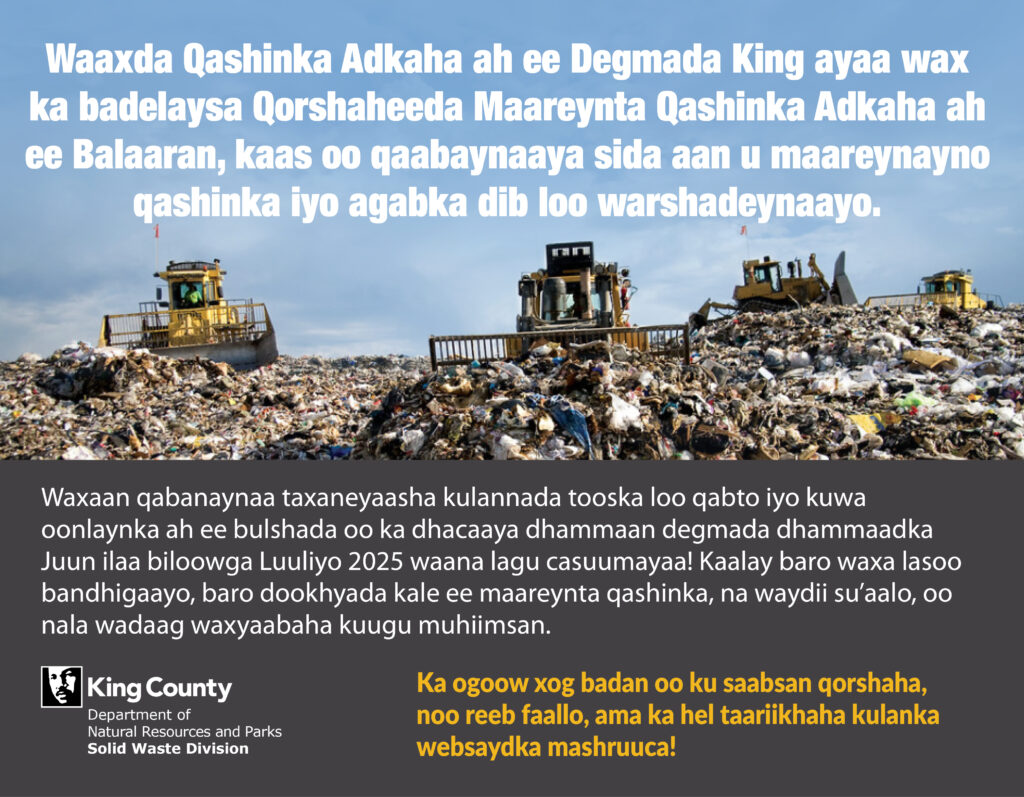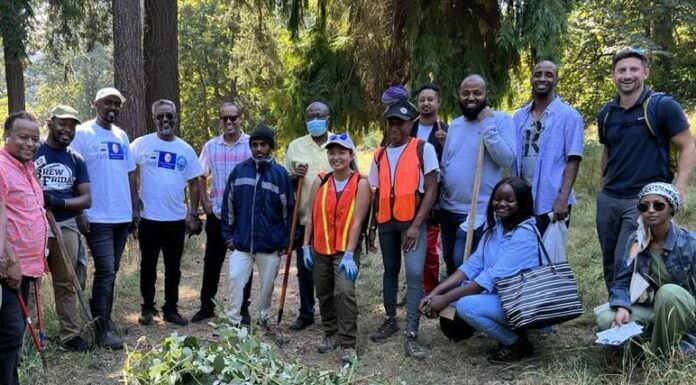
By Tariku Messele for Runta News-Seattle, Washington
Healing the land that sustains us is an effort that takes all of us. It takes our innovation and our hands, our money and our time, our collaboration and our commitment. Here at Serve Ethiopians Washington (SEW), we have made it our mission to be good neighbors to those around us and good stewards of the land we stand on. And as a recipient of the Port of Seattle’s latest round of environmental grants, we are striving to embody a well-rounded approach to environmental justice through the collaborative healing of our lakes, rivers, coastlines, and forests.
SEW was founded at a time when the need was especially critical: the start of the COVID-19 pandemic. We are an Ethiopian community-led organization committed to serving all people, regardless of heritage, and addressing longstanding problems like housing and food insecurity, which only increase during economic instability and a public health crisis. To date, SEW has helped over 1,500 households avoid housing destabilization with our vital eviction prevention program, provided critical childcare supplies like diapers to over 300 children through our diaper distribution program, and thrown ourselves into the work of raising community awareness about the importance of green spaces.
Our track record of effective community advocacy, education, and support made SEW an ideal candidate for a 3-year Port of Seattle grant aimed at helping the organization scale up volunteer recruitment to do urban forest resolution and trail clean-up at Angle Lake Park. We are focusing on the historically under-invested community in South King County, specifically around the airport, and centering the leadership and input of our volunteers, many of whom work at the airport.
Through our urban forest development and trail clean-up program, SEW is educating the public about environmental justice – what it is, how to fight for it, and how to make justice a reality. SEW’s approach has been intentionally inclusive and community-led, with flyers distributed to our network in three languages (Harik, Spanish, and Somali). And now, in collaboration with SeaTac City Park, we are working to clean up Angle Lake. We are also working with the City of SeaTac to add safety and park use signages in Amharic, Somali and Spanish languages at angle lake park. The flyers we distributed to our network are in “Amharic, Oromo and English languages.”
Last fall, a group of SEW members and volunteers gathered to remove invasive plants and prepare the land for planting season. We also planted native cedar trees and assessed other plants thanks to the careful attention and time of nearly 30 volunteers, adults and children alike. Not only did SEW mobilize our community around caring for shared green spaces, but we built community: our neighbors and friends had a great time together and spoke without hesitation about the joy we felt being part of the park clean-up. Our volunteer effort also fostered a sense of honor and pride in our work and the land.
The work continues, as SEW has already trained five youths, ages 16-24, to serve as forest stewards. Our organization is also proposing a modernization of the signage at Angle Park to create signage in multiple languages and to include images so people unable to read the sign still understand how to best care for and enjoy the land.
Those of us at SEW are proud of the work we’ve already accomplished and hope to imbue a renewed commitment to the well-being of the land and the people with whom we occupy it. We are grateful to receive support and partner with an organization like the Port of Seattle, which sees the value in investing in historically marginalized communities and remaking a better, greener future for all of us: person by person, tree by tree.



